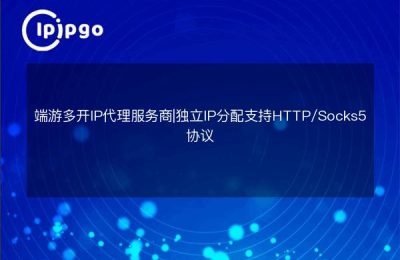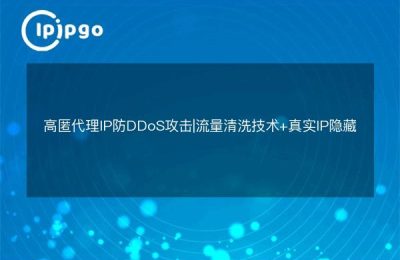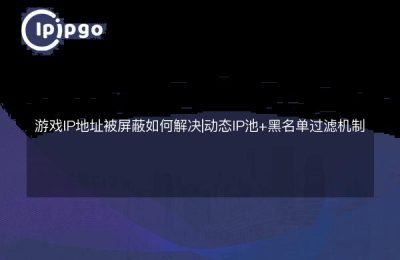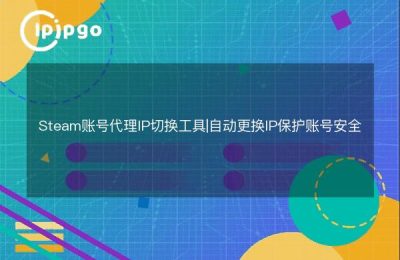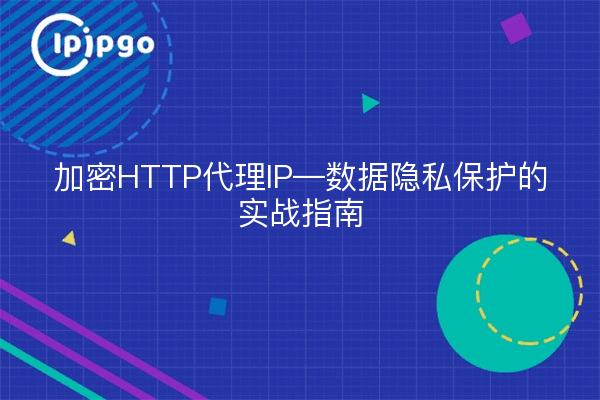
In business scenarios such as e-commerce logistics tracking and overseas advertising, companies have to transmit a large amount of data containing sensitive information such as customer addresses and transaction records every day. Transmitting this data through an unencrypted channel is like sending a bank password on a postcard - all handlers can snoop on the contents. As a global proxy service provider, ipipgo'sEncrypted HTTP Proxy SolutionIt has helped 3,000+ enterprises to realize full encryption of data transmission, and intercepted more than 800,000 illegal packet captures on average per day.
I. The Risks of Plaintext Transmission and the Value of Cryptographic Proxies
Ordinary HTTP proxies are like transparent courier boxes that data may encounter during transmission:
- Intermediate nodes capture account passwords
- Logistics information intercepted by competitors
- Payment interface was maliciously tampered with
The ipipgo encryption scheme usesSSL/TLS dual channel encryption, which is equivalent to putting a bulletproof safe on the data. Even if the transmission path passes through multiple nodes, only the sender and receiver have the out-of-the-box key.
Second, the enterprise selection of the three gold standard
| Assessment dimensions | General Agent | ipipgo encrypted proxy |
|---|---|---|
| data visibility | Full clear text transmission | end-to-end encryption |
| IP purity | Easy to pollute when shared by many | Exclusive Residential IP Pool |
| Protocol compatibility | HTTP only | Full protocol auto-adaptation |
III. Four-step approach to the deployment of the ipipgo encryption program
Step 1: Create an encrypted channel
Log in to the ipipgo console, select the "Encrypted Tunnel" module, and set the target server IP and port (e.g. logistics system API address). The system automatically generatesProprietary encryption certificatesIt supports both RSA/ECC encryption algorithms.
Step 2: IP Whitelist Binding
Import enterprise server IPs into the whitelist management system to ensure that only authorized devices can use the encrypted channel. Supports multiple whitelisting groups by department, with marketing and finance departments using different IP groups.
Step 3: Traffic Policy Configuration
Set up data transfer rules through the visual policy editor:
- Payment class requests: mandatory enabling of AES-256 encryption
- Image type transmission: Enable compression and encryption dual channel
- Log type data: Setting up a timed purge policy
Step 4: Abnormal Fusing Test
Test the reliability of the encryption system in a simulated attack environment. When ipipgo monitors abnormal traffic, it can switch standby nodes within 0.8 seconds and trigger SMS/email alerts.
Fourth, enterprise-level encryption program real-world cases
A cross-border logistics company after using the program:
- Packet loss reduced from 121 TP3T to 0.31 TP3T
- Hacking Attempts to Reduce 97%
- Overseas nodes are 5 times more responsive
Technical Key Points: AdoptionGeo-fencing + protocol diversiontechnology, European users are automatically matched with German encrypted nodes, and Asia-Pacific users are directly connected to Singapore data centers.
V. Three Iron Laws of Encryption Agent Management
1. Certificate rotation mechanism
Automatic renewal of encryption certificates every 90 days, old certificates enter the "Observation Period" retained for 7 days to avoid business interruption.
2. Dual identity verification
Operators are required to log in to the management system via face recognition + dynamic password at the same time, with permissions broken down to the field level (e.g. only allowed to view IP usage).
3. Intelligent traffic camouflage
By simulating normal user browsing patterns (page dwell time, click heat maps), encrypted traffic is made indistinguishable from regular web access.
VI. Enterprise FAQ QA
Q: Does encryption affect transmission speed?
A: ipipgo adoptedhardware accelerator cardThe measured latency increase is only 3-5ms for encryption processing, and the optimal node can be automatically selected by "intelligent routing" during peak hours.
Q: How do I verify the validity of encryption?
A: Provide online verification tools, enter any text to view the packet comparison before and after encryption. Support Wireshark packet capture teaching service.
Q: How to expand capacity for sudden traffic?
A: Encrypted IP pool supports elastic expansion, 300+ encrypted nodes can be added within 5 minutes without reconfiguring certificates.
(The solution in this article is PCI DSS Level 3 certified and is available to business users to receiveFree Encryption Test Kit(7*24 hours technical support)


